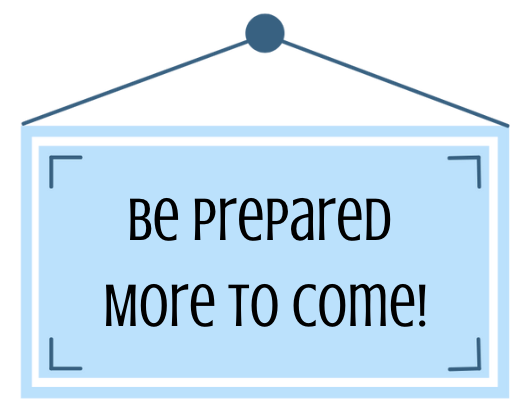“Dustoff inbound” was the message crackling over the radio that troops wounded in Vietnam most wanted to hear.
The message using the “Dustoff” call sign meant that an unarmed UH-1 “Huey” helicopter air ambulance with a red cross painted on the nose was coming for them no matter the weather, no matter whether the landing zone was “hot,” no matter whether there even was a landing zone — some 8,000 hoists while the aircraft hovered were conducted during the war.
To honour those who flew more than 496,000 Army medevac missions from May 1962 through March 1973, the House last week passed the Dustoff Crews of the Vietnam War Congressional Gold Medal Act.
The bipartisan bill to award the highest honour Congress can bestow was sponsored in the House by Reps. Derek Kilmer, D-Wash., and Cathy McMorris Rodgers, R-Wash. The Senate in May passed the bill, which will now go to the White House for President Joe Biden’s signature.
The bill states that the Dustoff crews, consisting of a pilot, co-pilot, crew chief and combat medic, carried out “rapid medical evacuation and transported almost 900,000 United States, South Vietnamese, and other allied sick and wounded, as well as wounded enemy forces” in 11 years of operations in Vietnam.
The focus was on getting the wounded from the battlefield to a field hospital within the “golden hour” that greatly increased the chances for survival.
As a result of the Dustoff missions, “we would see patients so much more quickly than had ever happened before in a war zone, where you couldn’t depend on ambulance runs through rotten roads and muddy hills,” Dr. Michael Mittelmann, a surgeon with the 8th Field Hospital in Nha Trang, said in an oral history for the Vietnam Centre and Sam Johnson Vietnam Archive at Texas Tech University.
Newcomers to Dustoff units were immediately told what was expected of them in their missions: “No hesitation. No reservation. No compromise. You get the wounded out,” said retired Army Lt. Col. Steve Vermillion, a Dustoff pilot who flew 1,452 missions and picked up 2,217 casualties.
In a video call, Vermillion, 76, of Altadena, California, now president of the Vietnam Dustoff Association, recalled his first mission in Vietnam in January 1969 when he had to put the UH-1 Huey into a hover while under fire. “It was a hoist off a tank” of two badly wounded soldiers, he said. “It was controlled chaos.”
The red crosses painted on the unarmed helicopters signifying a medical mission offered little protection from the anti-aircraft fire of the North Vietnamese Army or the Viet Cong, said former Dustoff crew chief Gary Hagen, 72, of Medford, Oregon.
“We picked up a lot of guys and we got shot up a lot, almost every time going and coming out,” Hagen said at a recent press event with Sen. Ron Wyden, D-Ore.
Of the approximately 3,400 Dustoff crew members who served during the Vietnam War, 211 were killed in action and 925 were wounded, retired Lt. Col. Chris Seidor, 77, of Barkhamsted, Connecticut, a pilot who flew Dustoff missions out of Binh Thuy in Vietnam, said in a phone call.
The dedication of the Dustoff crews to the rescue mission was epitomized by Maj. Charles Kelly, who commanded the 57th Medical Detachment and was posthumously awarded the Distinguished Service Cross, the nation’s second-highest award for valor after the Medal of Honor.
On July 1, 1964, Kelly “demonstrated exceptional courage, strong determination, and complete disregard for his own personal safety while participating in an aerial medical mission to evacuate wounded soldiers from an area under heavy attack by hostile forces,” the DSC citation said.
Ground commanders repeatedly told Kelly he was in grave danger and recommended that he take off and leave the area, but Kelly refused: “Not without the wounded,” he said. Kelly succeeded in taking aboard the wounded “moments before he was mortally wounded by hostile gun fire,” the citation said.
Army Gen. William Westmoreland, commander of the Military Assistance Command in Vietnam from 1964 to 1968, cited Kelly as an example of “the greatness of the human spirit” and highlighted his “not without the wounded” reply as an inspiration to all combat troops.
Gen. Creighton Abrams, who succeeded Westmoreland as overall commander in Vietnam, said of the Dustoff crews that “courage above and beyond the call of duty was sort of routine to them,” and “it meant so much to every last man who served there. Whether he ever got hurt or not, he knew Dustoff was there.”
Todd Mikolop, a lawyer with the Hunton Andrews Kurth LLP firm, which assisted the Vietnam Dustoff Association in mustering support for the Congressional Gold Medal, said in a video call that in the course of lobbying he heard from several veterans who had been wounded in Vietnam and told him, “When I heard the Huey coming, I knew I was going to be OK.”










